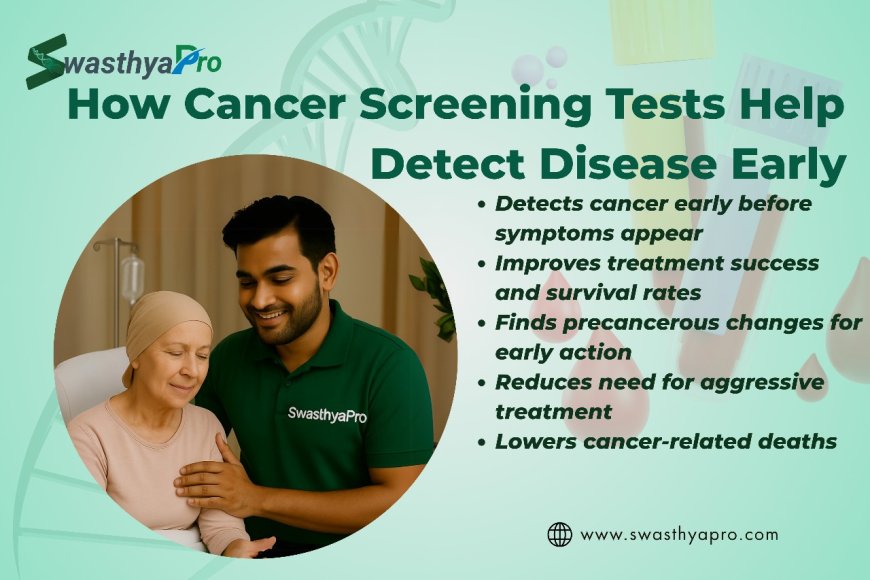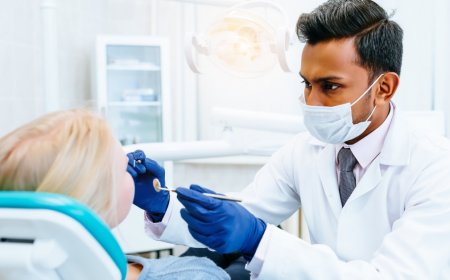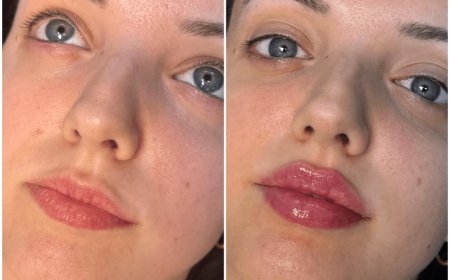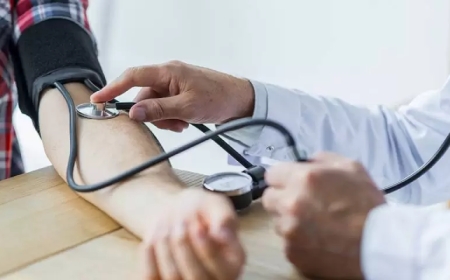Full Body Checkups vs Cancer Screening Tests — What’s the Difference?

Youve likely heard both terms: full body checkup and cancer screening test. They often appear in health ads, diagnostic packages, and doctor recommendations but theyre not the same. In fact, confusing the two can lead to missed diagnoses or unnecessary panic.
So whats the real difference between a full body checkup and a cancer screening test? Do you need both? When should you take them? And which one helps detect cancer early?
Lets decode the distinction so you can make smarter decisions for your health.
What is a Full Body Checkup?
A full body checkup is a comprehensive set of medical tests that evaluate your general health. It covers various organs and systems heart, liver, kidneys, lungs, thyroid, blood sugar, cholesterol, and more.
The purpose of a full body checkup is preventive it looks for early signs of diseases, deficiencies, or organ dysfunction.
Typical components of a full body checkup:
-
CBC (Complete Blood Count)
-
Blood sugar (fasting/postprandial)
-
Lipid profile
-
Liver function test (LFT)
-
Kidney function test (KFT)
-
Thyroid profile
-
ECG or chest X-ray
-
Urine analysis
-
Vitamin D & B12 levels
While extremely useful, a full body checkup may not include specialized cancer screening tests unless explicitly mentioned.
What is a Cancer Screening Test?
A cancer screening test is a specific test designed to detect early signs of cancer, often before symptoms appear. These tests are targeted focused on detecting abnormal cell growth, tumors, or genetic mutations in particular organs.
Common cancer screening tests include:
-
Pap smear (cervical cancer)
-
Mammogram (breast cancer)
-
PSA test (prostate cancer)
-
Colonoscopy / FIT (colon cancer)
-
Low-dose CT (lung cancer)
-
Oral examination (oral cancer)
-
HPV and tumor marker blood tests (CA-125, AFP, CEA, etc.)
These tests are not generally part of routine full body checkups unless requested or included in advanced packages.
Key Differences at a Glance
| Feature | Full Body Checkup | Cancer Screening Test |
|---|---|---|
| Purpose | General health evaluation | Early cancer detection |
| Covers | Heart, liver, kidney, thyroid, vitamins, sugar | Specific organs prone to cancer |
| Tests Included | Blood tests, urine, ECG, imaging | Pap smear, mammogram, colonoscopy, tumor markers |
| When to Take | Annually or bi-annually | Based on age, gender, and risk profile |
| Cost | ?999?2499 (basic) | ?1000?6000 depending on test |
| Where to Get | Most diagnostic centers | Specialized labs or health platforms like Swasthyapro |
Why Full Body Checkups Are Not Enough for Cancer Detection
Many people assume that a yearly full body checkup will catch cancer early. Unfortunately, thats not always the case.
Example: A full body checkup may check your hemoglobin, liver enzymes, and cholesterol but it wont tell you if you have cervical dysplasia (precancerous changes in the cervix). That requires a Pap smear, a separate cancer screening test.
Similarly, if you have a family history of colon cancer, your LFT or KFT wont show anything abnormal but a FIT test or colonoscopy might reveal polyps or early-stage cancer.
This is why understanding the need for targeted cancer screening tests is so important especially if youre over 40, have a family history, or experience lifestyle-related risk factors like smoking or obesity.
When Do You Need a Full Body Checkup?
Opt for a full body checkup when:
-
You want to assess your overall health
-
You have no symptoms but want a preventive review
-
Youre managing lifestyle diseases like diabetes or hypertension
-
You're starting a new fitness regime or job
This is your health baseline it helps detect common disorders, imbalances, and lifestyle diseases.
When Do You Need a Cancer Screening Test?
Choose a cancer screening test when:
-
You're aged 30+ (Pap smear) or 40+ (mammogram, PSA, colon tests)
-
You have a family history of any cancer
-
You have habits like tobacco use, alcohol, or sedentary lifestyle
-
You notice red flags: unexplained weight loss, fatigue, bleeding, or lumps
-
Youve never done cancer-specific tests before
In these cases, waiting for a full body checkup is risky. You need early, organ-specific detection.
Can You Combine Both?
Absolutely. In fact, health platforms like Swasthyapro now offer smart health panels that combine full body checkups with cancer screening tests. You can customize your package based on age, gender, and risk and get everything done with home sample collection, expert reports, and affordable pricing.
A combined plan ensures youre not just checking surface numbers but also looking deeper, where disease begins silently.
Final Thoughts
Your body is not a machine that breaks down overnight. Most diseases including cancer grow quietly. A full body checkup gives you a general health status. But a cancer screening test goes further it scans for threats you cant feel yet.
The smartest move? Dont choose between them. Do both.
And dont wait for symptoms because by then, it might already be late.
Take control. Choose prevention. Book your combined checkup today with Swasthyapro because your health is worth more than guesswork.


































